Getting to the heart of business plans
Spend a little bit of time working with social entrepreneurs in the Northern Territory, and you will quickly learn that one of the most frustrating and disappointing characteristics of the space is just how hard it is to get the right support. One of the biggest barriers we come across is the Business Plan.
The reality of finding support
In order to get support – financial or otherwise – application processes require a set of documents. One of these documents is the business plan.
We’ve lost count of how many times we’ve seen emerging entrepreneurs take their ideas to consultants who demand the big bucks to create business plans. Here in the Northern Territory, this practice is more common than in many other areas and NT entrepreneurs are the ones who are losing out in the process.
While there are lots of things wrong with the way these processes work currently, there are two big issues at the heart of it all:
Consultants don’t know the business
So often, we have entrepreneurs coming to us at ELP and telling us they’ve received a business plan from a consultant – that they’ve paid thousands of dollars for – that they don’t understand and they’d like us to help them change it for them.
When it comes to your business, only you know the ins and outs. This isn’t to say that the right professional couldn’t help you bring things together and refine, but ultimately, you are the one who has the ideas, your own numbers and own considerations of the realities of your business. Being in charge of this information for the future of your business is important.
As good as they may be, an external consultant will always make assumptions about your business without the right context. The classic example is around what months of the year you can operate in a highly disruptive climate, and your ability to work on your business on the ground in a remote community when you may have another job, or other expectations. Anyone can pull some numbers to make a business look like a success, it’s what is behind the numbers that counts.
This kind of thinking can be problematic. The document a consultant draws up based on these assumptions will be inaccurate and, if support is being supplied based on the information in this business plan, it can set you up to appear as though you’ve failed when you don’t meet expectations.Application processes are often focused on ticking boxes
A huge responsibility lies with those of us who are in the funding and support space. Asking for a business plan has become the status quo. We expect to see it in application processes. But why?
If consultants are so often getting the business plan wrong, creating something that isn’t feasible, but businesses are still able to get funding, then what is the business plan there for? Often, it’s just there to tick a box – to make us feel like we’ve done the right thing by asking.
This is not to say that business plans aren’t important. If it’s the difference between you securing a million dollars in funding or walking away empty-handed, they can certainly be valuable. But their importance diminishes when they’re inaccurate or unfeasible. Those in the funding and support spaces need to examine why they require these documents and consider what they’re demanding of entrepreneurs when they set those expectations.
Does it have to be these mammoth documents? Can it be a more flexible request? Could it be a different format? Could the requirement be met through a conversation? There are different ways of working and it’s down to those within the systems to change the way they work so that their programs are more accessible to entrepreneurs who need them.
When we first engage with an entrepreneur, we don’t expect to see a business plan. We ask meaningful questions about their goals in business, how they imagine their future, and what they need help with. If they have a business plan, it can be useful background information, but it’s not a prerequisite for support.
Business plans should be a tool for running business
Consultants love to fill business plans with their own jargon, making sure that it stays within their domain, and making it inaccessible for entrepreneurs to make changes to it. In the process of expecting entrepreneurs to submit business plans to funding applications, we’ve forgotten their essential purpose – to help us plan and run our business.
It’s better to have a document that you know inside and out, that you created by using your real knowledge of your business, and that you feel confident to update as things change. If every time you want to make a change you need to call in a ‘professional’, you will never be in touch with your business plan.
Empowering every entrepreneur
While creating business plans can be a daunting task and the learning curve can be steep, the assumption that entrepreneurs can’t do it for themselves is ridiculous.
There is always an opportunity to transfer skills. At ELP, our focus is on transferring knowledge to empower entrepreneurs to build these parts of their business for themselves, rather than outsourcing to someone else.
Application processes can be frustrating, but they can unlock more opportunities for your business. Position yourself as best as you can by having a business plan that is feasible, accurate and finely-tuned, by you.
We focus on helping you – and entrepreneurs like you – to get your head around the numbers and the details, so you feel in control and equipped to make change.



